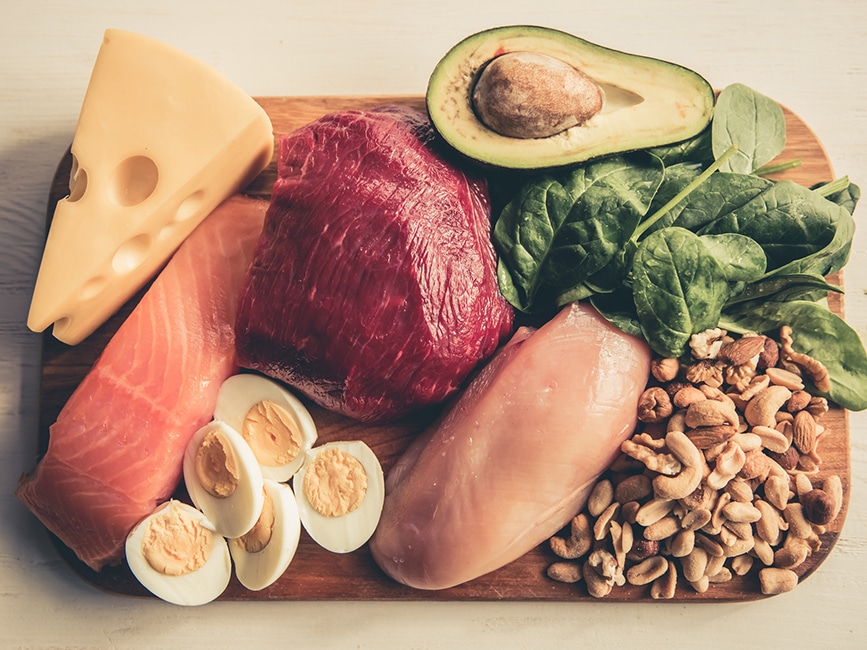Online Nutrition Searches Follow Food Trends
Peer-reviewed studies shed light on questions and claims about food.

It’s rewarding to see that some people are searching reliable sources of nutrition information rather than blindly following the fads and opinions littering the online world. The American Society for Nutrition, which publishes four peer-reviewed journals, released a list of ASN articles that received significant press coverage and sharing on social media (some had well over 1,000 tweets). You or your clients may have been among the searchers. The articles included studies that reached these conclusions:
- Consuming high levels of red meat or white poultry resulted in higher blood cholesterol levels than consuming a comparable amount of plant proteins; plant proteins are the healthiest for blood cholesterol.
- A well-formulated ketogenic diet does not appear to be dangerous and may offer an initial approach for controlling obesity and diabetes. However, high-quality research is needed to discover the long-term effects of this eating pattern.
- Eating less frequently, not snacking, eating breakfast and consuming the day’s largest meal in the morning are practices that may be effective for maintaining body weight.
- Drinking 6 cups of coffee (or more) each day is modestly associated with an increased risk of cardiovascular disease compared with drinking 1–2 cups a day.
- No evidence currently exists to support the claims that a diet specific to a blood type benefits health.
The Society is composed of nutrition researchers, and it may be that nutritionists and dietitians were among those interested in these articles, perhaps because they were being asked about the topics.
Question of the Month: Do Online Searches Seek Proven or Fad Diets?
Among topics searched in the diets category in 2019, number one was intermittent fasting, according to Google Trends. This was followed by the plant-based, alkaline Dr. Sebi diet; the phone-app Noom diet; the restrictive 1,200-calories diet; and the hormone-focused Golo diet. Do you spot a trend of people searching for more information on trendy diets?
None of these eating patterns popped up as a popular search on the American Society of Nutrition’s list of peer-reviewed studies. Social media may be a large influence on searches for diets reputed to help with weight loss or to boost health. After all, there is lots of clickbait online. Friends, family and the ever-active desire for a quick fix to achieve weight or health goals may also suggest a search. And a search is not destiny—information may not translate into action.
Which diets do clients tell you they have searched for online? How did they find out about those diets? Do you search for diets for weight loss or a health issue for your own interest, or to answer a client’s question? Where do you look?
Send your answers to content@ideafit.com.
Patricia Ryan, MS
Patricia Ryan, MS, develops educational content for leaders and professionals in the wellness, fitness and older-adult marketplaces. Ryan has conducted market research and authored numerous white papers, survey reports, industry analyses and research reviews along with producing educational webinars. She holds a master’s of science degree in instructional technology aimed at designing professional education. She was IDEA’s first editor in chief and developed the Gold Standard of content for which IDEA is still known.





